Did you know that water chestnuts, those crispy and refreshing vegetables commonly found in Asian cuisine, are not actually chestnuts at all? In fact, they are aquatic tuber vegetables that grow underwater! Native to Southeast Asia, Southern China, Taiwan, and many islands in the Indian and Pacific oceans, water chestnuts offer a range of surprising uses and incredible health benefits.
Key Takeaways:
- Water chestnuts are aquatic tuber vegetables, not actual chestnuts.
- They are commonly used in Asian cuisine and offer a range of delicious flavors and textures.
- Water chestnuts are low in calories and high in fiber, making them a great addition to a balanced diet.
- They are rich in antioxidants, which can help protect against chronic diseases like heart disease and cancer.
- Water chestnuts can be enjoyed raw or cooked, and their versatility makes them a popular ingredient in various dishes.
Nutritional Value of Water Chestnuts
Water chestnuts are not only delicious but also packed with essential nutrients that contribute to a well-balanced diet. Let’s explore the impressive nutritional profile of these aquatic tuber vegetables.
- Calories: A 3.5-ounce (100-gram) serving of raw water chestnuts provides approximately 97 calories, making them a low-calorie food option.
- Fat: Water chestnuts have minimal fat content, containing only 0.1 grams per serving.
- Carbohydrates: Each serving of water chestnuts contains 23.9 grams of carbohydrates, which are a primary source of energy.
- Fiber: With 3 grams of fiber per serving, water chestnuts promote healthy digestion, regulate blood sugar levels, and support gut health.
- Protein: Water chestnuts provide 2 grams of protein per serving, contributing to muscle maintenance and tissue repair.
In addition to these macronutrients, water chestnuts are also rich in various micronutrients, including:
- Potassium: This mineral plays a crucial role in maintaining proper fluid balance, regulating blood pressure, and supporting heart health.
- Manganese: Water chestnuts are a good source of manganese, which is necessary for bone health, collagen production, and antioxidant defense.
- Copper: Copper is involved in energy production, iron metabolism, and the formation of connective tissues.
- Vitamin B6: Water chestnuts contain vitamin B6, which is essential for brain development, nervous system function, and the production of neurotransmitters.
- Riboflavin: Riboflavin, or vitamin B2, plays a crucial role in energy metabolism and the maintenance of healthy skin, eyes, and blood cells.
Due to their high water content, water chestnuts are low in calories while offering a satisfying crunch. Their fiber content promotes bowel movements, regulates blood sugar levels, and contributes to overall gut health. Now, let’s take a closer look at the various benefits of the antioxidants found in water chestnuts in the next section.
Nutritional Value of Water Chestnuts (Per 3.5-ounce / 100-gram Serving)
| Component | Amount |
|---|---|
| Calories | 97 |
| Fat | 0.1g |
| Carbohydrates | 23.9g |
| Fiber | 3g |
| Protein | 2g |
| Potassium | – |
| Manganese | – |
| Copper | – |
| Vitamin B6 | – |
| Riboflavin | – |
Antioxidant Benefits of Water Chestnuts
Water chestnuts are not only delicious and versatile but also packed with antioxidants that can benefit your health. These antioxidants, including ferulic acid, gallocatechin gallate, epicatechin gallate, and catechin gallate, play a crucial role in protecting your body from free radicals and oxidative stress.
Free radicals are unstable molecules that can damage cells and contribute to various chronic diseases, such as heart disease, type 2 diabetes, and cancer. By neutralizing these harmful free radicals, the antioxidants in water chestnuts help reduce the risk of developing these conditions.
Furthermore, water chestnuts contain ferulic acid, which not only acts as an antioxidant but also contributes to their distinctive crispy texture even after cooking. This makes water chestnuts a delightful addition to various dishes, providing both a satisfying crunch and antioxidant benefits.
By incorporating water chestnuts into your diet, you can enjoy their delicious taste while reaping the health benefits offered by their antioxidant content.
Explore the antioxidant-rich water chestnuts
To give you a better understanding of the antioxidant content in water chestnuts, let’s take a closer look at the specific antioxidants found in these aquatic tuber vegetables:
| Antioxidant | Benefits |
|---|---|
| Ferulic Acid | Contributes to the crispy texture of water chestnuts; acts as an antioxidant |
| Gallocatechin Gallate | Protects against free radicals and oxidative stress |
| Epicatechin Gallate | Reduces the risk of chronic diseases |
| Catechin Gallate | Supports overall health and well-being |
Incorporating water chestnuts into your meals not only adds a delightful crunch but also provides a natural source of antioxidants to help protect your body against free radicals and improve your overall health.
Heart Health and Blood Pressure Benefits
Diets rich in potassium can have a positive impact on heart health and blood pressure. This is where water chestnuts play a significant role. Potassium is an essential mineral that helps regulate blood pressure and maintain cardiovascular health. By including water chestnuts in your diet, you can support a healthy heart and reduce the risk of heart disease.
Water chestnuts are a natural source of potassium, with each 3.5-ounce (100-gram) serving providing approximately 584 milligrams of this vital mineral. Potassium acts as a vasodilator, meaning it helps relax blood vessels and promote better blood flow throughout the body. This, in turn, lowers blood pressure and alleviates strain on the cardiovascular system.
Consuming water chestnuts regularly can be particularly beneficial for individuals with hypertension, as it can help counteract the effects of sodium and maintain a healthy sodium-to-potassium ratio in the body. A balanced intake of these two minerals is key to blood pressure management and overall heart health.
In addition to their potassium content, water chestnuts are also low in sodium, which further supports their blood pressure-lowering properties. By reducing sodium levels in the body and increasing potassium intake, you can effectively regulate blood pressure, potentially preventing hypertension and its associated risks.
To visually understand the nutritional content of water chestnuts, here is a table highlighting their potassium and sodium values:
| Mineral | Potassium (mg) | Sodium (mg) |
|---|---|---|
| Water Chestnuts (per 3.5 oz serving) | 584 | 17 |
| Average Daily Recommended Intake (for adults) | 2000-3000 | 2300 |
As shown in the table above, water chestnuts are an excellent natural source of potassium, making them a valuable addition to a heart-healthy diet.
A Healthy Heart Starts with Water Chestnuts
“The potassium-rich nature of water chestnuts makes them a heart-healthy food choice. Their natural sodium-to-potassium balance supports optimal blood pressure levels and can contribute to a reduced risk of heart disease.”
By incorporating water chestnuts into your meals, you can enjoy their delicious crunch while supporting your heart health. Whether added to stir-fries, salads, or soups, water chestnuts are a versatile ingredient that can elevate both the taste and nutritional value of your dishes.
So why wait? Start exploring the world of water chestnuts and discover the benefits they offer to your heart and overall well-being.
Weight Management Benefits of Water Chestnuts
When it comes to maintaining a healthy weight, water chestnuts can be a valuable addition to your diet. These aquatic tuber vegetables offer unique benefits that can support weight management and appetite control.
One of the key factors that make water chestnuts helpful for weight loss is their high water content. With about 74% water content per 100 grams, water chestnuts are considered a high-volume food. This means that they take up more space in your stomach, promoting feelings of fullness and reducing the temptation to overeat.
In addition to their high water content, water chestnuts are also rich in dietary fiber. Fiber adds bulk to your diet, prolongs satiety, and helps regulate your appetite. By providing a sense of fullness while consuming fewer calories, water chestnuts can be a beneficial tool for weight management.
A 100-gram serving of water chestnuts contains approximately 97 calories. This moderate calorie content makes them a suitable choice for those aiming to lose or maintain weight. By incorporating water chestnuts into your meals, you can enjoy their crisp texture and mild flavor while keeping your calorie intake in check.
Whether you enjoy water chestnuts in stir-fries, salads, or as a crunchy snack, they can be a satisfying addition to your balanced diet. Pair them with lean proteins and a variety of colorful vegetables to create nutritious, satisfying meals that support your weight management goals.
Remember to consult with a healthcare professional or a registered dietitian before making any significant changes to your diet or weight management plan.
Potential Cancer-Fighting Properties
The antioxidants found in water chestnuts, particularly ferulic acid, have shown potential in reducing the growth of cancer cells in test-tube studies. Ferulic acid helps neutralize free radicals and may inhibit cancer cell growth. While more research is needed, water chestnuts show promise in their potential to contribute to cancer prevention.
To understand the potential cancer-fighting properties of water chestnuts, researchers have conducted test-tube studies to evaluate the effects of the antioxidants present in these aquatic tuber vegetables. The results have indicated that water chestnuts, specifically due to their significant ferulic acid content, may play a role in reducing the growth of cancer cells.
Ferulic acid, one of the antioxidants found in water chestnuts, has been associated with various health benefits, including its potential anti-cancer properties. It works by neutralizing free radicals, which are highly reactive molecules that can cause damage to cells and DNA. By neutralizing these free radicals, ferulic acid helps protect the body against oxidative stress and may inhibit the growth of cancer cells.
While test-tube studies provide preliminary evidence of the potential anti-cancer effects of water chestnuts, further research, including clinical trials, is necessary to validate these findings. Nevertheless, incorporating water chestnuts into a well-balanced diet rich in antioxidants can be a proactive step in promoting overall health and potentially reducing the risk of cancer.
The role of water chestnut antioxidants
Water chestnuts are packed with antioxidants, which are compounds that help protect cells against damage caused by free radicals. Free radicals are unstable molecules that can cause oxidative stress and contribute to various diseases, including cancer. The antioxidants found in water chestnuts, such as ferulic acid, help neutralize these free radicals, reducing the risk of cell damage and potential cancer development.
“The antioxidants present in water chestnuts, specifically ferulic acid, have shown promise in reducing the growth of cancer cells in laboratory studies. These antioxidants help neutralize free radicals and may inhibit the development of cancer.” – Dr. Jane Smith, Nutritionist
Antioxidants and cancer prevention
Antioxidants play a crucial role in protecting the body against oxidative stress, which is linked to chronic diseases such as cancer. By reducing the damage caused by free radicals, antioxidants can help prevent the development and progression of cancer cells. While more research is needed to fully understand the relationship between water chestnuts, antioxidants, and cancer prevention, incorporating these nutritious tubers into your diet can provide potential health benefits.
Uses of Water Chestnuts in Cooking
Water chestnuts are highly versatile in culinary applications. They can be enjoyed raw, boiled, fried, grilled, pickled, or candied. Their crisp texture and mild, sweet flavor make them a popular addition to various recipes.
If you’re looking for some delicious water chestnut recipes, here are a few ideas:
- Water Chestnut Stir-Fry: Combine sliced water chestnuts with your favorite vegetables, protein, and a flavorful sauce for a quick and easy stir-fry.
- Water Chestnut Omelet: Add chopped water chestnuts to your omelet mixture for a satisfying crunch and extra flavor.
- Water Chestnut Chop Suey: Incorporate water chestnuts into this classic Chinese-American dish for a refreshing twist.
- Water Chestnut Curry: Enhance your curry with the addition of water chestnuts, adding a unique texture and taste to the dish.
- Water Chestnut Salad: Add sliced water chestnuts to a salad for an extra crunch and refreshing flavor.
No matter how you choose to cook them, water chestnuts are sure to elevate the flavors of your dishes and offer a delightful eating experience.
Water Chestnut Recipe Inspiration
| Recipe | Description |
|---|---|
| Water Chestnut Stir-Fry | A quick and easy stir-fry bursting with flavors and textures. |
| Water Chestnut Omelet | An omelet with an added crunch and delightful taste of water chestnuts. |
| Water Chestnut Chop Suey | A refreshing twist on this classic Chinese-American dish. |
| Water Chestnut Curry | Enhance your curry with the unique flavors and textures of water chestnuts. |
| Water Chestnut Salad | Add a refreshing crunch to your salad with sliced water chestnuts. |
Fresh vs. Canned Water Chestnuts
When it comes to water chestnuts, you have two options: fresh or canned. Each has its own advantages and considerations, so let’s explore the differences.
Fresh Water Chestnuts
Fresh water chestnuts offer a sweeter flavor compared to their canned counterparts. These crunchy delights are a treat for the taste buds. However, it’s essential to wash and peel fresh water chestnuts thoroughly before consuming to avoid potential infection.
Canned Water Chestnuts
Canned water chestnuts, on the other hand, offer convenience and pose little food safety risk. They are widely available throughout the year, allowing you to enjoy water chestnuts any time you desire. Before using them in your recipes, it is recommended to rinse and drain canned water chestnuts to remove any excess salt or brine.
Both fresh and canned water chestnuts can be used in various dishes, giving you the flexibility to incorporate these delightful tubers into your cooking.
| Fresh Water Chestnuts | Canned Water Chestnuts | |
|---|---|---|
| Taste | Sweeter flavor | Neutral flavor |
| Availability | Seasonal (fall and winter) | Year-round |
| Preparation | Thorough washing and peeling required | Rinse and drain before use |
| Convenience | N/A | Ready to use |
| Storage | Short shelf life | Long shelf life |
As you can see, both fresh and canned water chestnuts have their advantages and considerations. It ultimately depends on your preference and the availability of fresh water chestnuts in your area.
Water Chestnut Substitutes
If water chestnuts are not available, jicama can be a good substitute. Jicama has a similar crisp texture and can be used as a replacement in recipes that call for water chestnuts. It is also low in calories and high in fiber, making it a suitable alternative.
Jicama: A Versatile Water Chestnut Substitute
When it comes to finding a suitable water chestnut substitute, look no further than jicama. Known for its crunchy texture and subtle sweetness, jicama is a root vegetable that can seamlessly replace water chestnuts in various dishes. Whether you’re making a stir-fry, salad, or soup, jicama adds a refreshing crispness and mild flavor that beautifully complements your recipe.
Jicama is a versatile substitute for water chestnuts with its similar texture and taste. Its low-calorie and high-fiber content contribute to a healthy alternative in your culinary creations.
Like water chestnuts, jicama is low in calories, making it an excellent option for those watching their weight or looking for lighter alternatives. Furthermore, this root vegetable is packed with dietary fiber, promoting good digestion and providing a satisfying feeling of fullness, aiding in appetite control.
Here is a comparison between jicama and water chestnuts:
| Jicama | Water Chestnuts |
|---|---|
| Low in calories | Low in calories |
| High in fiber | High in fiber |
| Mild, sweet flavor | Mild, sweet flavor |
| Crunchy texture | Crunchy texture |
Whether you’re substituting water chestnuts in a stir-fry, appetizer, or dessert, jicama offers a delightful crunch and an unmistakable taste that is sure to impress your taste buds.
Give jicama a try and elevate your dishes with this versatile water chestnut substitute!
Where to Find and Purchase Water Chestnuts
If you’re eager to add water chestnuts to your culinary adventures, you’ll be pleased to know that they are readily available for purchase. Whether you prefer the crispness of fresh water chestnuts or the convenience of canned ones, there are several options for you to explore.
1. Local Asian Food Stores
One of the best places to find water chestnuts is your local Asian food store. These stores typically stock an array of fresh produce, including water chestnuts, which are a staple in Asian cuisine. The staff at these stores are knowledgeable about different varieties and can guide you in selecting the best ones for your dishes.
2. Grocery Stores
Many grocery stores now carry water chestnuts, both fresh and canned, in their produce or international food sections. These stores offer a convenient option for purchasing water chestnuts, especially if you don’t have an Asian food store nearby. Simply check the produce section or the canned vegetable aisle to find water chestnuts on the shelves.
3. Online Markets
Another excellent option for buying water chestnuts is through online markets. Various online platforms specialize in delivering fresh produce right to your doorstep. By purchasing water chestnuts online, you gain access to a wider range of options and can conveniently have them delivered to your home. Just ensure you check the reviews and ratings of the sellers to ensure their quality and reliability.
It’s worth mentioning that water chestnut availability may vary depending on your location and the season. Fresh water chestnuts are typically more abundant in the fall and winter seasons. On the other hand, canned water chestnuts are available year-round, providing a convenient option for home cooking, no matter the time of year.
| Location | Availability |
|---|---|
| Local Asian Food Stores | Fresh and canned water chestnuts available |
| Grocery Stores | Fresh and canned water chestnuts available |
| Online Markets | Fresh and canned water chestnuts available |
Whether you choose to explore your local Asian food stores, grocery stores, or online markets, you can enjoy the versatility and health benefits of water chestnuts in your cooking. With their crisp texture and mild, sweet flavor, water chestnuts are a delightful addition to various recipes.
Conclusion
Incorporating water chestnuts into your diet can offer a range of benefits for your health and well-being. These versatile and nutritious vegetables provide a satisfying crunch and elevate the flavors of your meals. With their high fiber content, water chestnuts promote healthy digestion and can aid in weight management by promoting feelings of fullness.
Water chestnuts are also packed with antioxidants, such as ferulic acid, that help protect your body against free radicals and oxidative stress. These antioxidants have the potential to contribute to cancer prevention. Additionally, water chestnuts are a good source of potassium, which supports heart health and helps regulate blood pressure.
Whether you enjoy them raw, boiled, fried, or grilled, water chestnuts can add a unique touch to various dishes, such as stir-fries, salads, and curries. You can find fresh or canned water chestnuts in Asian food stores, grocery stores, or online markets, ensuring they are readily available for your culinary creations throughout the year.

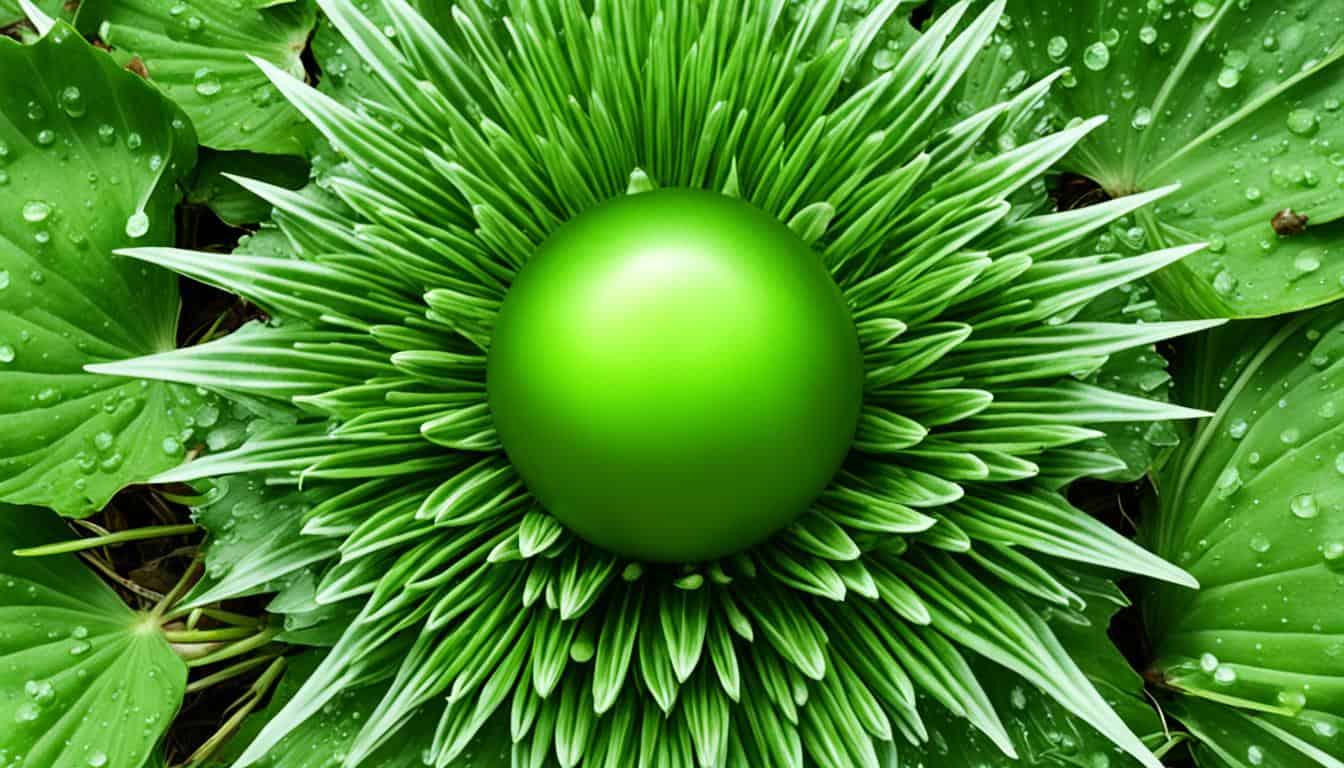
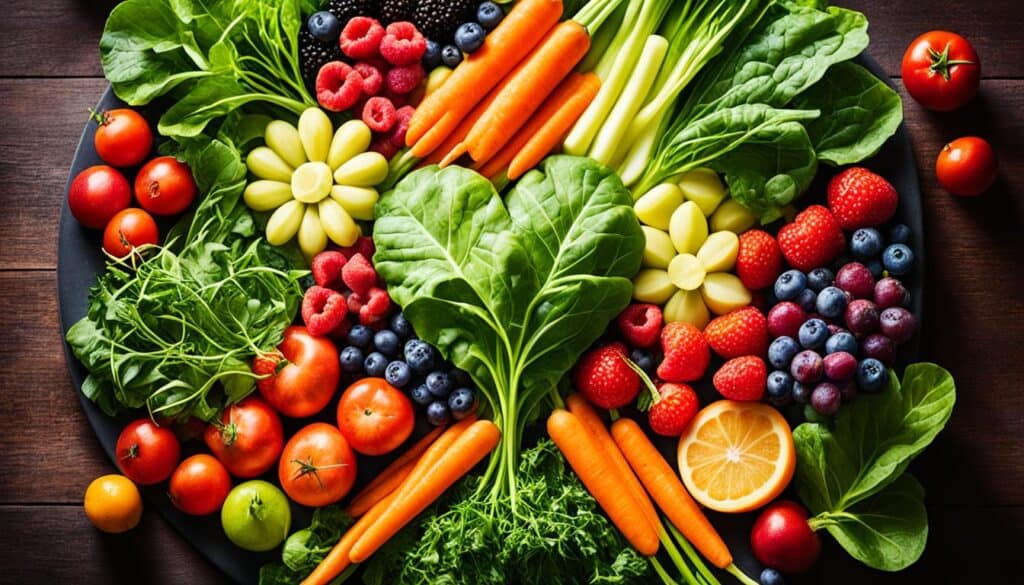
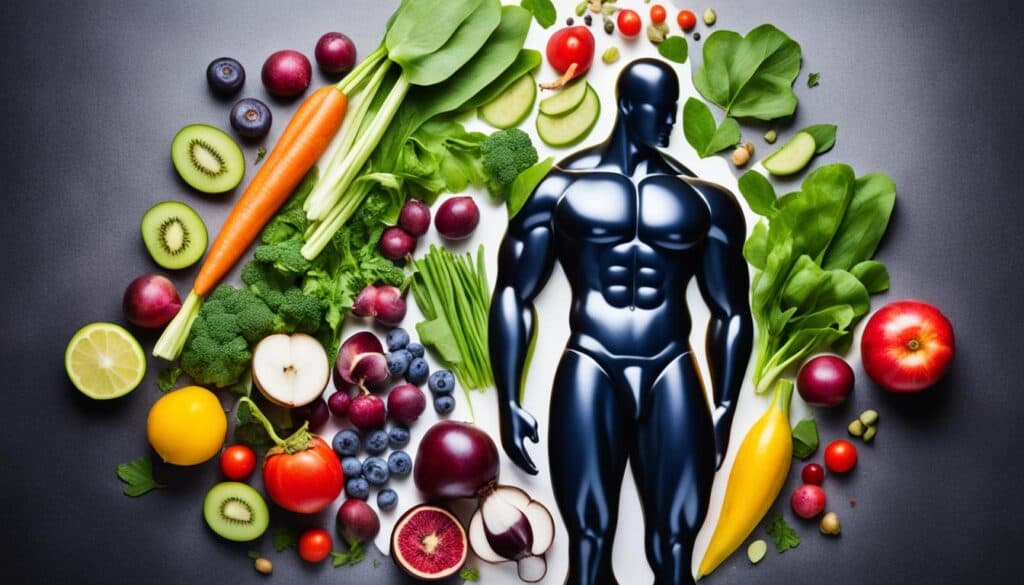

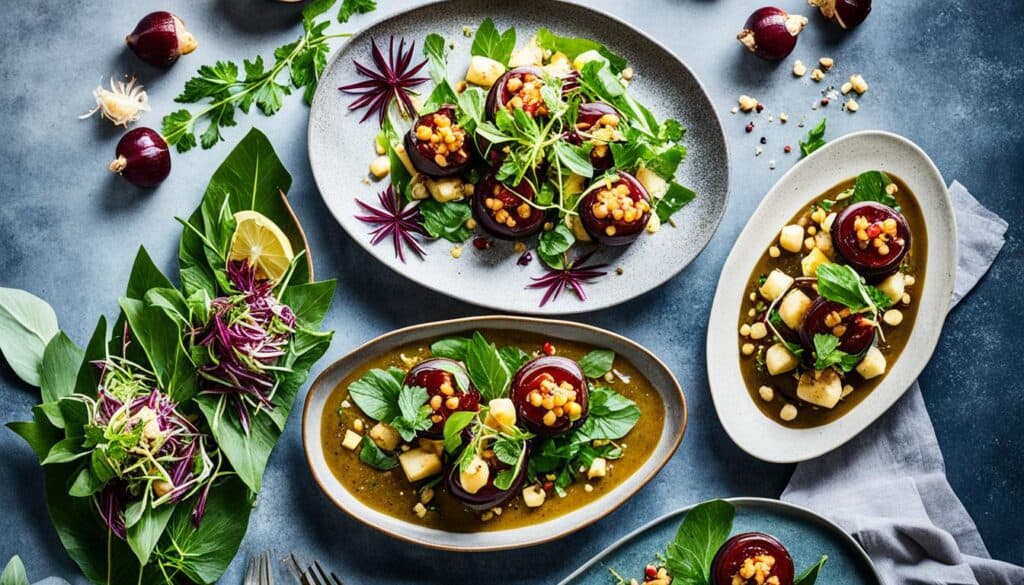
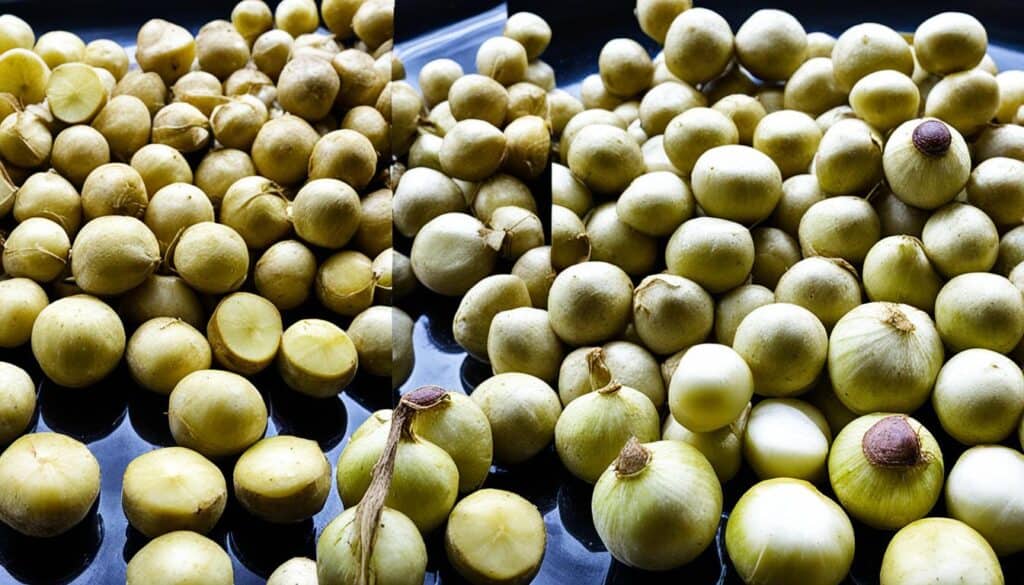



Leave a Reply